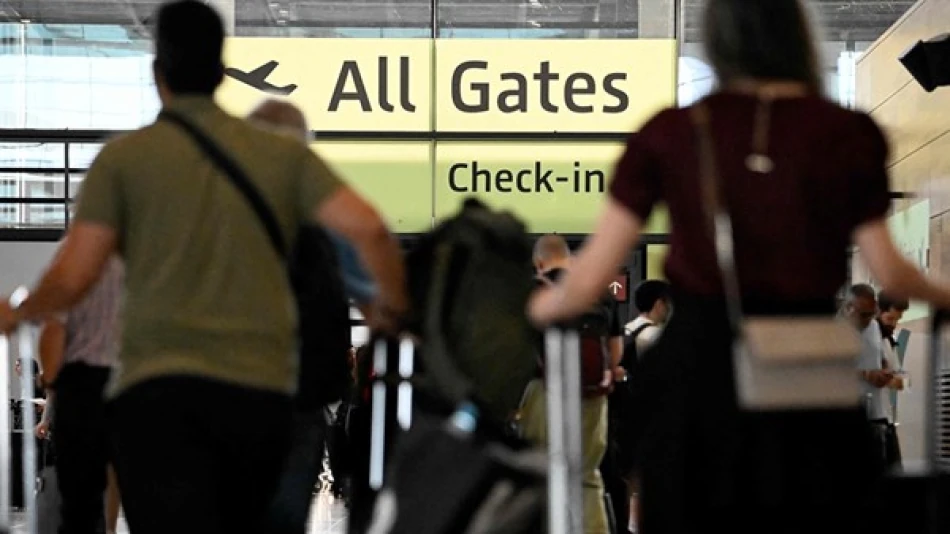
Berlin Airport Forecasts Flight Delays on Monday
European Airport Chaos Continues as Cyber Attack Cripples Check-in Systems
Berlin Airport warned Sunday that flight disruptions will stretch into Monday as four major European airports struggle to recover from a cyber attack that hit passenger check-in systems over the weekend. The attack on Collins Aerospace has forced staff to resort to pen-and-paper processes, creating a cascading effect that could take days to fully resolve.
The Scale of Monday's Expected Disruption
Berlin Airport expects around 95,000 passengers on Monday – significantly higher than the typical 75,000 to 85,000 travelers on a regular weekday. This surge comes as the airport still can't provide a timeline for when its digital check-in and baggage handling systems will be fully operational.
Airport officials admitted they have no clear end in sight. "There is no lifting of the alert status so far," a spokesperson said Sunday, highlighting how cyber attacks on critical infrastructure can have lingering effects well beyond the initial breach.
Four Major Hubs Hit Simultaneously
The weekend attack targeted Collins Aerospace, a company that provides passenger registration systems to multiple airports across Europe. Berlin, Brussels, Dublin, and London Heathrow all reported service disruptions, according to Eurocontrol, the European aviation safety organization.
This coordinated impact shows how interconnected modern airport operations have become. When one tech provider goes down, it can simultaneously cripple operations across multiple countries and time zones.
Back to Basics: Pen and Paper Operations
Berlin Airport staff had to abandon their computer systems entirely, reverting to handwritten passenger lists and manual processes. Some travelers who arrived Saturday didn't receive their luggage until Sunday, creating a backlog that will likely persist into the new week.
This throwback to pre-digital operations demonstrates how dependent airports have become on seamless technology integration. When systems fail, there's often no quick backup plan.
A Growing Pattern of Infrastructure Attacks
Cyber attacks on transportation infrastructure have become increasingly common and sophisticated. Airports represent particularly attractive targets because they handle massive passenger volumes and rely heavily on interconnected digital systems.
The Collins Aerospace incident follows a pattern seen in other critical sectors – attackers target service providers rather than individual facilities, maximizing their impact across multiple locations simultaneously.
What This Means for Air Travel Security
This attack exposes a fundamental vulnerability in modern aviation: the concentration of critical services among a small number of technology providers. When Collins Aerospace goes down, four major European airports lose functionality at once.
For passengers, this incident serves as a reminder that digital disruptions can cause delays and complications that extend far beyond the initial attack window. The ripple effects – delayed baggage, overcrowded terminals, stressed staff working with manual systems – can persist for days.
Airlines and airports will likely face renewed pressure to develop more robust backup systems and reduce their dependence on single points of failure in their technology infrastructure.
Most Viewed News

 Layla Al Mansoori
Layla Al Mansoori






